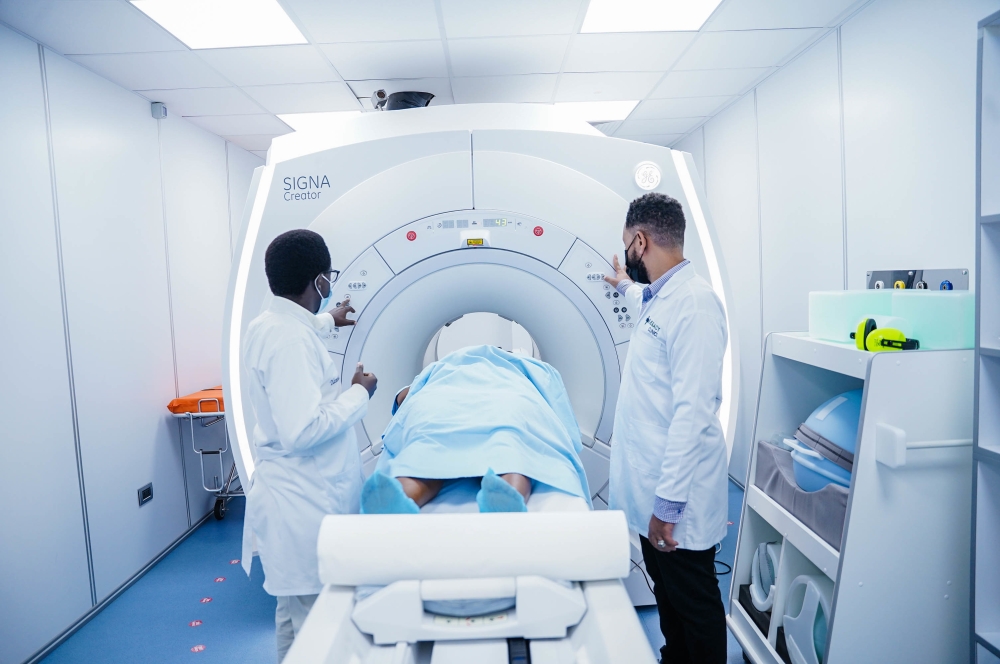

The emergence of Artificial Intelligence (AI) has sparked conversations and controversies alike, igniting minds and arousing masses. But beyond the buzz, AI has proven that it is here, and here to stay. itself as a transformative force, calling us to explore its boundless potential.
Within healthcare, where every decision bears much significance, AI's presence has been met with both skepticism and excitement. While some question its role in direct patient care such as treatment procedures and surgeries, others recognise its capacity to amplify healthcare's impact in ways we are yet to fully grasp.
Currently, AI algorithms are being used to analyze medical images such as x-rays, MRIs, CT scans and mammograms to assist radiologists in detecting abnormalities hence improving diagnostic accuracy and enhancing patient outcomes.
In the pharmaceutical field, AI is accelerating the drug discovery process by predicting molecular interactions, simulating drug responses and identifying potential drug candidates. AI powered platforms streamline drug screening, lead optimization, and clinical trial design, leading to faster and more cost-effective drug development.
Drug development is a complex and time-consuming process that could take around 15 years give or take, but with the involvement of AI, the various processes involved could be expedited shaving several years off the process.
AI has also been used to provide assistance in customer service through healthcare chatbots and virtual assistants. These provide 24/7 support to patients, offering information on symptoms, scheduling appointments, answering medical queries and providing remote monitoring and follow up care.
We got to appreciate this better during the wake of COVID-19 when human contact was a risk factor and with a high rate of infections among medical professionals. At Kigali International Airport in 2020, Urumuri robot among the five robots that were deployed to Rwanda was screening around 100 people in one minute.
AI-powered robots played a crucial role in patient care and emerged as silent heroes providing round the clock support when human interaction was limited hence, ensuring continuity of care while minimizing infection risks.
In the pharmaceutical supply chain, companies go for long periods without medical equipment, pharmaceuticals and materials due to a long production period, logistics and paperwork involved. More than that, it has been very difficult to predict the demand of several items since there are several trends and changes affecting demand. Hence, a medical item can be off the market for months making it scarce and spiking the prices of the items for distributors who have it in stock.
All these combined factors end up affecting the end user. Despite that, different companies both local and around the world, have adopted AI driven procurement platforms that help predict demand through collecting information on the different market trends hence having the required stock all year long. As much as this sounds great, it is still work in progress but the whole point is how AI algorithms are making an impact in resolving this issue even at their initial stages.
Beyond healthcare, AI's influence has greatly impacted the agricultural sector along many other sectors. In farming, AI techniques such as machine learning and genetic algorithms have gone a long way in accelerating the breeding of crops with desirable traits such as; drought resistance, disease tolerance and higher nutritional value. This is even more important in this era of unpredictable climate change that has led to long periods of droughts which have contributed to food insecurity, hunger and poverty.
All in all, despite the many advancements that we have been able to make through the assistance of AI, it is still a topic up for debate with many speculating that we are taking steps towards the robots’ era as we have seen in very many movies.
But amid the excitement, cautionary tales abound. Questions of AI's autonomy, regulatory and oversight demand our attention, managing deepfakes and misinformation due to AI powered tools that are used for content generation, Ethical usage of AI technologies particularly in sensitive areas such as health care, criminal justice and warfare and job security that would contribute to the ongoing issue of unemployment and so much more.
Either way, AI has infiltrated all sectors and platforms like a metastasized cancer and the issue now should be more about crafting policies and regulations to govern AI tools and platforms and designing them based on what we need to accomplish. The world has gone through several revolutions and in low- and middle-income countries, we shouldn’t miss out on this AI revolution. This may be an opportunity for us to swiftly but consciously tap into the limitless advantages that come with AI.
The author is a dental health professional


